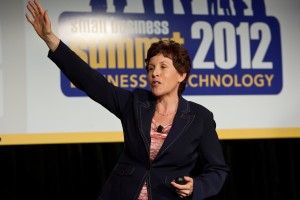How much is Sales Call Reluctance Costing You?
Posted by Andrew Greess on Jul 3, 2013
This is a special guest post by Connie Kadansky, Sales Call Reluctance Coach. I hope my pest control & weed control readers find it helpful. Connie's contact info is at bottom of post.
 What would your profit and loss report look like if you had a proactive prospecting plan that you followed consistently? What if you did some homework, identified your ideal prospect, and learned that it’s possible to book yourself solid with appointments?
What would your profit and loss report look like if you had a proactive prospecting plan that you followed consistently? What if you did some homework, identified your ideal prospect, and learned that it’s possible to book yourself solid with appointments?
Sales Call Reluctance is the emotional hesitation to prospect and self-promote. When you do your homework, target your market, you will make direct marketing calls, not the dreaded cold call that sends shivers up your spine.
There are 12 distinct types of fear that can cause salespeople to avoid the prospecting. Do any of these sound familiar?
- Doomsayers will not take risks. This type of call reluctance can be lethal to a sales career.
- Over preparers tend to overanalyze and avoid action. They’re busy, busy, busy people busy with current clients, admin work, organizing files, studying the latest trends- which keeps them from meeting qualified prospects.
- Hyper-pro salespeople are obsessed with image. They look good, but they confuse packaging with prospecting.
- Stage fright causes many salespeople to default on prospecting that would lead to opportunities to present before groups.
- Role rejection plagues those who are secretly ashamed of any kind of selling. They tend to believe that society dislikes salespeople, and they themselves get irritated and annoyed when salespeople solicit them.
- Yielders fear intruding on others. They have a strong need to be liked and are habitually waiting for “just the right time” to make contact. Of course, that time rarely arrives.
- Socially self-conscious salespeople are intimidated by up-market clients.
- Separationists are afraid to mix business and friends.
- Emotionally unemancipated salespeople are afraid to mix business and family.
- Referral aversion affects those salespeople who selectively forget to ask for referrals out of fear of disturbing existing relationships.
- Telephobic salespeople are uncomfortable using the telephone for prospecting.
- The oppositional reflex characterizes salespeople who tend to criticize or blame others for what goes wrong with their businesses. Even though they are usually gifted, talented, and intelligent people, they don’t take responsibility for their sales and often don’t get ahead.
A solution for call reluctance
If you recognize yourself in any of these styles, you need not feel embarrassed or ashamed. But at the same time, you don’t have to go on living with it.
The first step in overcoming call reluctance is admitting that you are not prospecting consistently. Call reluctance is simply a manifestation of a person’s negative beliefs about prospecting.
Thought realignment is an effective tool for changing your thinking. Look at it this way: A belief is merely a thought you think over and over and over again. The human brain is a meaning-making machine. Before we’ve even reached for the phone to make a prospecting call, we can make up a story about why that person on the other end of the line will not take our call or why they’re not interested. The key is to stop making up stories that spiral you into self-doubt.
A very effective way to get started is to capture your self-critical inner voice on paper, in your own handwriting. Do you recognize this voice “they are already using another pest control guy.”
Engage the internal voice in written dialogue. “These prospects may not be happy with their current vendor.” It’s best to come up with several perspectives so you recognize you are getting trapped in your perspective only.
In the end, your success or failure as a business person depends on your willingness to meet enough new prospects to achieve your revenue goals. If you want to succeed, you must commit to prospecting.
Connie Kadansky, Sales Call Reluctance Coach/Trainer. www.exceptionalsales.com 602-997-1101 Connie helps entrepreneurs and salespeople develop viable prospecting action plans. She also helps salespeople get their “ask” in gear.
